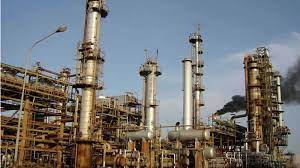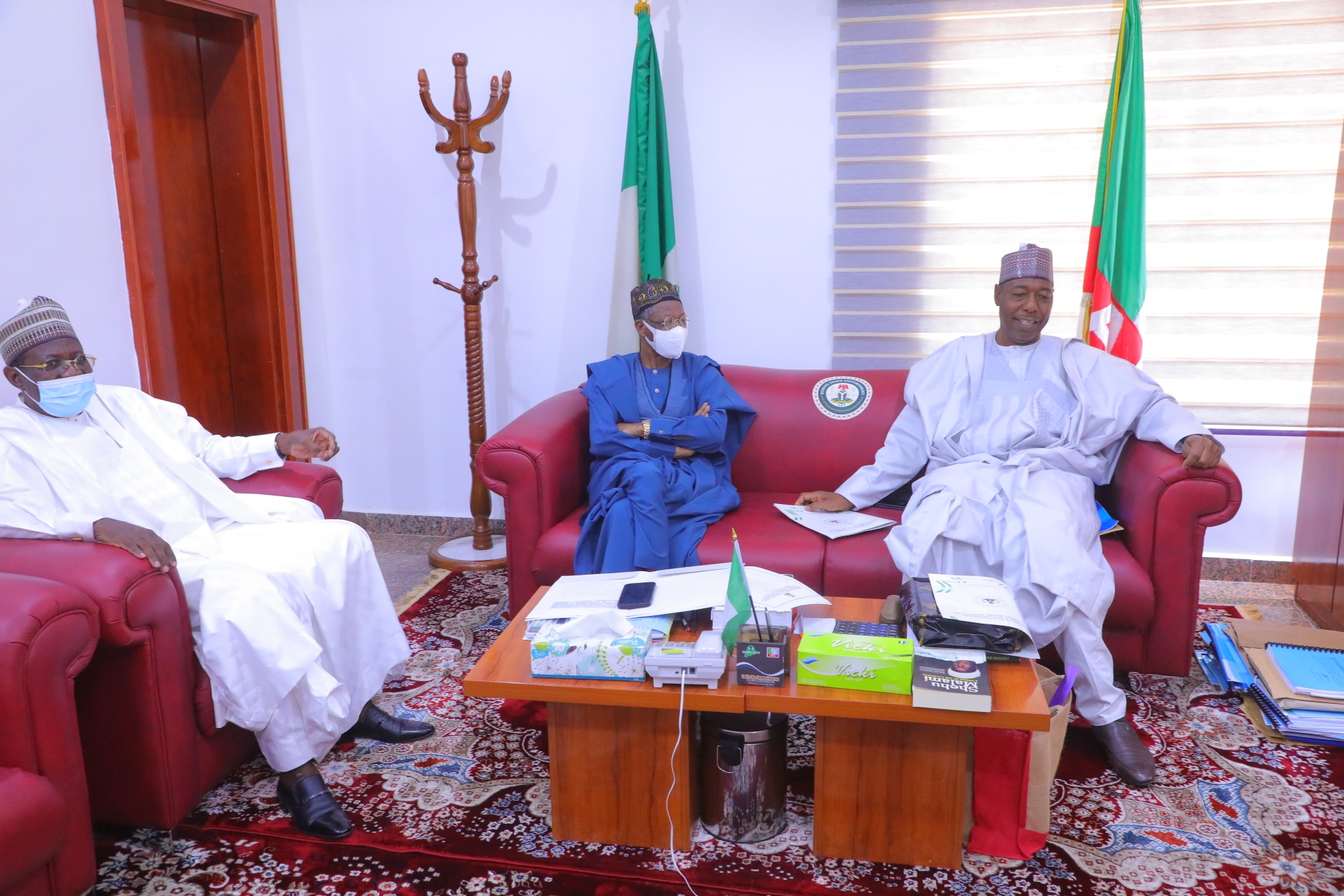By Safiriyu Babatunde
The Federal Government has reiterated that the rehabilitation of its refineries are underwayand would be instrumental to theproduction of 3 million barrels of oil per day, even as it continues to foot fuel subsidy for the importation of refined petroleum products into the country,said to last until July 2022.
The minister of state for petroleum resources, Chief Timipre Sylva, disclosed that the ministry had begun putting the Port Harcourt Refinery and Petrochemical Company in good shape, just as he has assured that the rehabilitation of Warri and Kaduna refineries will commence soon.
The minister, who made this known throughthe Permanent Secretary, Ministry of Petroleum Resources, Dr. Nasir Gwarzo, did not give a timeline for completion of works on the Warri and Kaduna refineries, even as he affirmed that the ministry was working to secure approval of the Federal Executive Council for comprehensive rehabilitation of all refineries in the country.
He expressed confidence in the fact thatNigeria would meet the three million barrels per day quota allocated to the country by the Organization of Petroleum Exporting Countries (OPEC). Hence, he noted that though the country currently produced about 1.3 million barrels per day, concerted efforts were being made to increase production to meet the OPEC quota.
He further said that the Federal Executive Council (FEC) had mandated the ministry to meet the three million barrels per day production within the shortest time possible.
The four refineries; being managed by its state owned company; Nigerian National Petroleum Corporation (NNPC), located in Port Harcourt, Kaduna and Warri, with a combined installed capacity of 445,000 barrels per day, generated zero revenue in the previous year (2020), as they did not process a single barrel of crude oil, with losses growing to N887bn in just five years.
Recall that the Federal Government had spent about N1.47trn in maintaining, revamping and running these refineries between 2015 and 2020, with reports showing that Port-Harcourt refinery stopped producing crude in March 2019. Kaduna refinery, the worst performer, has not received or processed crude since 2017, while Warri refinery stopped in June 2019.
Again, during this five-year period, the refineries only generated a total revenue of N21.12bn, with a loss of nearly N900bn as they operated at below their full capacities.
To be clear, the NNPC had in 2015 expended N82.82bn on the refineries, while in 2016, N78.95bn expenditure was recorded on them. In 2017, the corporation used N604.127bn in maintaining the refineries. Year 2018 witnessed a dip to N426.66bn, with a further drop to N218.18bn,recorded in 2019.
Last year (2020), Kaduna Refining and Petrochemical Company reported a loss after tax of N55.77bn; Port Harcourt Refining Company recorded N28.67bn loss; and Warri Refining and Petrochemical Company posted a loss of N23.85bn. Even at that, workers at these refineries were paid a total of N69.07bn.
According to figures released by the NNPC, salaries, wages and other fringe benefits paid to Kaduna refinery workers was N26.02bn. Port Harcourt refinery put its aggregate payroll costs (wages, salaries and allowances, redundancy and pension costs) at N22.55bn, while Warri refinery has its aggregate costs of employees; comprising direct labour cost and indirect labour and staff welfare cost, at N20.51bn.
Providing explanations for the loss, the management of Port Harcourt Refining Company (PHRC) had said: “The losses have arisen principally from the inability of the company to refine single drop of crude in year 2020 and other previous years in quantities and at rates above its break even points, hence it was unable to earn enough revenue to cover its costs.”
“Irrespective of its zero revenue and huge loss, the company still made donations and community development assistance of N32.398 million
It added that: “The Company also extended support to the host communities by way of palliative for COVID-19 pandemic to the tune of N6.6 million.”
KRPC on its part narrated that the major drivers of the company’s loss, included direct cost and administrative expenses, which stood at N10.479 billion and N17.77 billion, respectively; and ‘reversal of Material Revaluation Surplus Actuarial (Expenses)/Benefit on Liability’, which stood a N27.538 billion. Yet, it spent the sum of N22.055 million on local community development and made a donation of N2.718 million to charitable organizations.
Sadly, reports show that their consolidated losses persisted in 2021, with losses of N5.37 billion and N6.88 billion in January and February alone.
Before now, FG had pledged to spend $1.5 billion on rehabilitating the Port Harcourt refinery. It is to be completed in three phases, with the first being within 18months, which will take the refinery to 90 percent production capacity, while the second and final phases will be carried out within 24 months and 44 months respectively, adding that it had three funding components, namely from the NNPC’s Internally Generated Revenue (IGR), budgetary allocations provisions and loans from Afreximbank.
No wonder the PHRC set a 2023 target for a cessation of its recurring loss. “Without doubt, if this plan is fully executed, the reoccuring losses will stop in the year 2023 which is the expected date of completing phase one of the rehabilitation project”, it said.
Approval was also given for Kaduna at $586,902,256, in three phases as well.As gathered, the first phase will be completed within 21 months. In 23 months, phase two will be completed and in 33 months, full rehabilitation will be completed.
The government hadequally committed to taking some shares in the Dangote Refinery project; which is expected to begin production in 2022, with an installed 650,000 barrels per day capacity.
However, it presently spends heavily on fuel subsidy, even as it looks forward to ending such regime in mid-2022.
Speaking during the panel session at the just concluded 15th OTL Africa Downstream Week, the Managing Director, Petroleum Products Marketing Company (PPMC), a subsidiary of the Nigerian National Petroleum Corporation, IsiyakuAbdullahi, said the annual subsidy on Premium Motor Spirit (petrol), will rise to N3trillion if the current market realities persist
‘At $80 crude oil, 60 million litres daily consumption and N411/$1 forex, PMS under-recovery per litre will be N138/litre. Daily PMS under-recovery will be N8.3 billion. Annual PMS under-recovery will escalate to N3trillion’, he submitted.
Lamenting the huge sums going into the subsidy regime, MuhammaduSanusi had said, “Every year, the government spends millions upon millions of dollars on fuel subsidies without appropriation. Under the constitution, this is enough ground to impeach the President.”
However, theFinance, Budget and National Planning Minister, Mrs. Zainab Ahmed did stress at a panel session during the 27th Nigerian Economic Summit that provision had been made for the first six months of next year, stating that subsidy payment would stop since complete deregulation of the downstream oil and gas sector will start by July 2022.
In her words, “In our 2022 budget, we only factored in subsidy for the first half of the year; we are looking at complete deregulation of the sector, saving foreign exchange and potentially earning more from the oil and gas industry”.
As it were, the nation’s crude output stands at 1.88 million barrels per day (bpd) in the 2022 budget. Although, findings show that its agreement with OPEC is roughly 1.47 million bpd.
Nevertheless, experts have expressed doubt over the projected 3mbpd production in the shortest time possible.
For instance, in his response to a text message sent on the minister’s position, an energy expert, Engr. BabajideSoyode, simply said; “I am not so sure. Perhaps, the Honourable Minister has more information than is available to the Public or the Industry”.
In other words, while the projection for 3mbpd appears a huge task on one hand, the NNPC and indeed the Federal Government have lots more to battle with in the short and midterms. Clearly, there is the urgent need to stem the tide of its refineries’ woeful financial performances. In the same vein, the implementation of the Petroleum Industry Act (PIA)must now be given adequate attention. This is to enable the resolution of all sundry issues in the oil and gas sector; particularly as it concerns the payment of fuel subsidy and full deregulation of the downstream sector, which could save the nation N3tn yearly and allow for the requisite investments.













